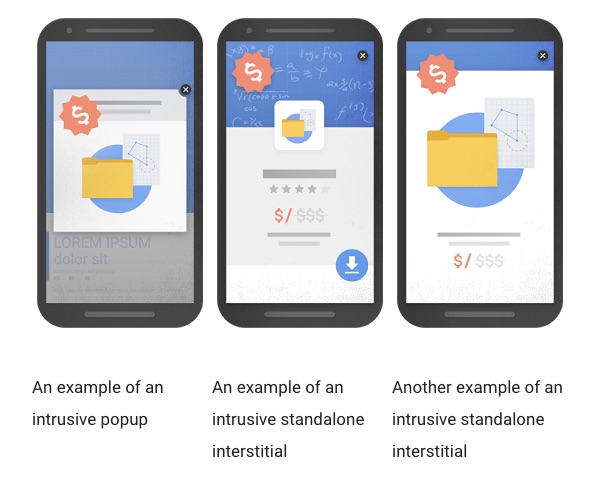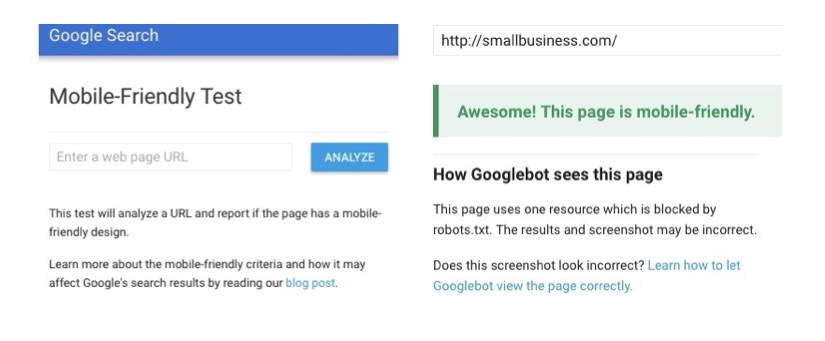Apologies up front: This post may sound a little geeky, but it’s something everyone with a business website should prepare for.
First the news, then the explanation
Google has announced that on January 10, 2017, it will make changes to its mobile search algorithm that will penalize websites that contain certain types of interstitial messages or ads. It’s important to note that Google is NOT banning ALL interstitials, as we’ll explain below. But first a question some of you may have:
What’s an interstitial?
It’s anything that pops up in front of the content you went to the website to see. On SmallBusiness.com, before January 10, 2017, we had (or have, depending upon when you’re reading this) two such interstitials: one, a newsletter signup and the other (which we get to keep) is to help users add a bookmark for this site to your home screen.
Why is Google going to penalize some interstitials on mobile websites?
As we have explained on several occasions, Google’s golden goose is the speed and accuracy it delivers users to the knowledge they seek when searching. As the majority of Google search users have shifted to mobile searches rather than desktop or laptop searches, Google is focusing more and more on the speed and accuracy of mobile search results
Two years ago, Google started rewarding sites that followed its guidelines for being mobile-friendly. Today, they have determined that 85% of all pages in the mobile search results are mobile-friendly.
However, while the underlying content is present on the page and can be indexed by Google, the content may be visually obscured by an un-indexed interstitial. “This can frustrate users because they are unable to easily access the content that they were expecting when they tapped on the search result,” according to Doantam Phan, a Google product manager.
Here are the kinds of interstitials Google has determined are bad

Here are the kinds of interstitials Google has determined are good
Not all interstitials are evil says Google. Here are some examples of techniques that, used responsibly, would not be affected by the new signal:
- Interstitials that appear to be in response to a legal obligation, such as for cookie usage or for age verification.
- Login dialogs on sites where content is not publicly indexable. For example, this would include private content such as email or unindexable content that is behind a paywall.
- Banners that use a reasonable amount of screen space and are easily dismissible. For example, the app install banners provided by Safari and Chrome are examples of banners that use a reasonable amount of screen space.
How much will a website be penalized if it doesn’t remove the bad interstitials
According to Phan, the change “is just one of hundreds of signals that are used in ranking. The intent of the search query is still a very strong signal, so a page may still rank highly if it has great, relevant content.”
Bonus: How mobile friendly is your small business website?
Google provides a mobile-friendly test here. For a guide to mobile friendliness from Google, look here.

Thinkstock

